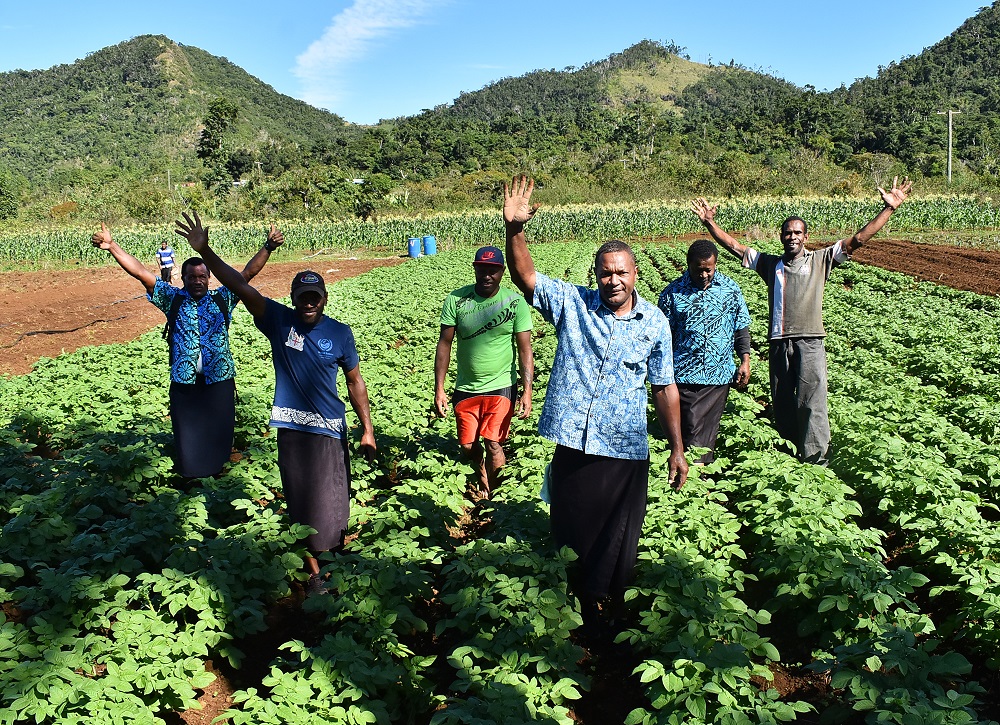As tourism steadily grew as an industry to claim top spot in Fiji’s GDP earnings, agriculture slowly faded as an afterthought — and a plethora of issues ranging from disease, labour shortages and dwindling funds further pushed the industry into obscurity.
The sector now contributes an average of just over 8 per cent to Fiji’s GDP each year, which amounts to roughly over $600 million, according to a case study on climate resilient food systems conducted by the United Nations Framework Convention on Climate Change (UNFCCC).
In the 1960s the World Bank recorded agriculture as contributing to about 37.8 per cent of GDP.
Recognising agriculture’s potential and its role in the country’s economic development, Finance Minister Professor Biman Prasad says the sector will not be forgotten.
In an interview with this newspaper, he said while a bulk of earnings — almost 40 per cent — was being raked in by tourism, there was a need to further diversify industries constituting the remaining 60 per cent. The focus now is to grow dalo, cassava and ginger among other crops, all to be assisted through the $95.2 million allocated through the 2023/2024 National Budget.
“In the long run, globally, food is going to become the most important commodity in terms of trade, and it is going to fetch good prices as well,” Prof Prasad said.
“So, if we look at the potential, agriculture is quite big. So, in terms of diversification, especially agriculture, the Agriculture Ministry has done a good job so far.
“They’ve been very aggressive. We’ve got a very good minister of agriculture who understands what’s going on. And I’m confident that agriculture will become one of the key sectors contributing to our economy in the next one or two years.”
However, issues surrounding land leases continue to persist as landowners and farmers alike have been affected by the economic fallout of waning and unproductive farmlands.
Prof Prasad said Government had quickly recognised this as the crux of many issues afflicting communities, and a joint taskforce was convened to iron out a long-term solution.
Having attended some of the consultations himself, Prof Prasad admitted there were a lot of misunderstandings among different entities.
“What we try to do is to bring all the different agencies together and that is very clear recognition and understanding of what this means. There are areas where land leases were not renewed, and they are lying idle for many years.”
He cited cases in Daku, Wainikoro and Udu Point, where cash flow in these small communities were affected once small-scale businesses closed shop, farmers packed up and left, and economic activity was halted.
“Once the leases were not renewed, the farmers left, then landowners also were deprived, and young people also left to find jobs in urban areas.”
Working alongside the iTaukei Land Trust Board, Prof Prasad said they endeavoured to achieve a fair situation for all — landowners and farmers alike — to rejuvenate the agriculture sector.
The task force now has the responsibility of mapping a way forward, as Prof Prasad said they aimed to create a policy whereby landowners got their fair share of compensation, rent and premium, and farmers were also secure in their field.
“I’m confident that land leases issue will be resolved amicably with a focus on growing the economy, growing the agriculture sector, on making sure that there is appropriate investment for the landowners as well.”
The plan is also to boost other sectors such as fisheries, forestry, business process outsourcing (BPOs), as well as medical tourism.
This is expected to be boosted through the setting up of a 100-bed speciality hospital for the Pacific, based in Fiji and funded by the
Indian government.



